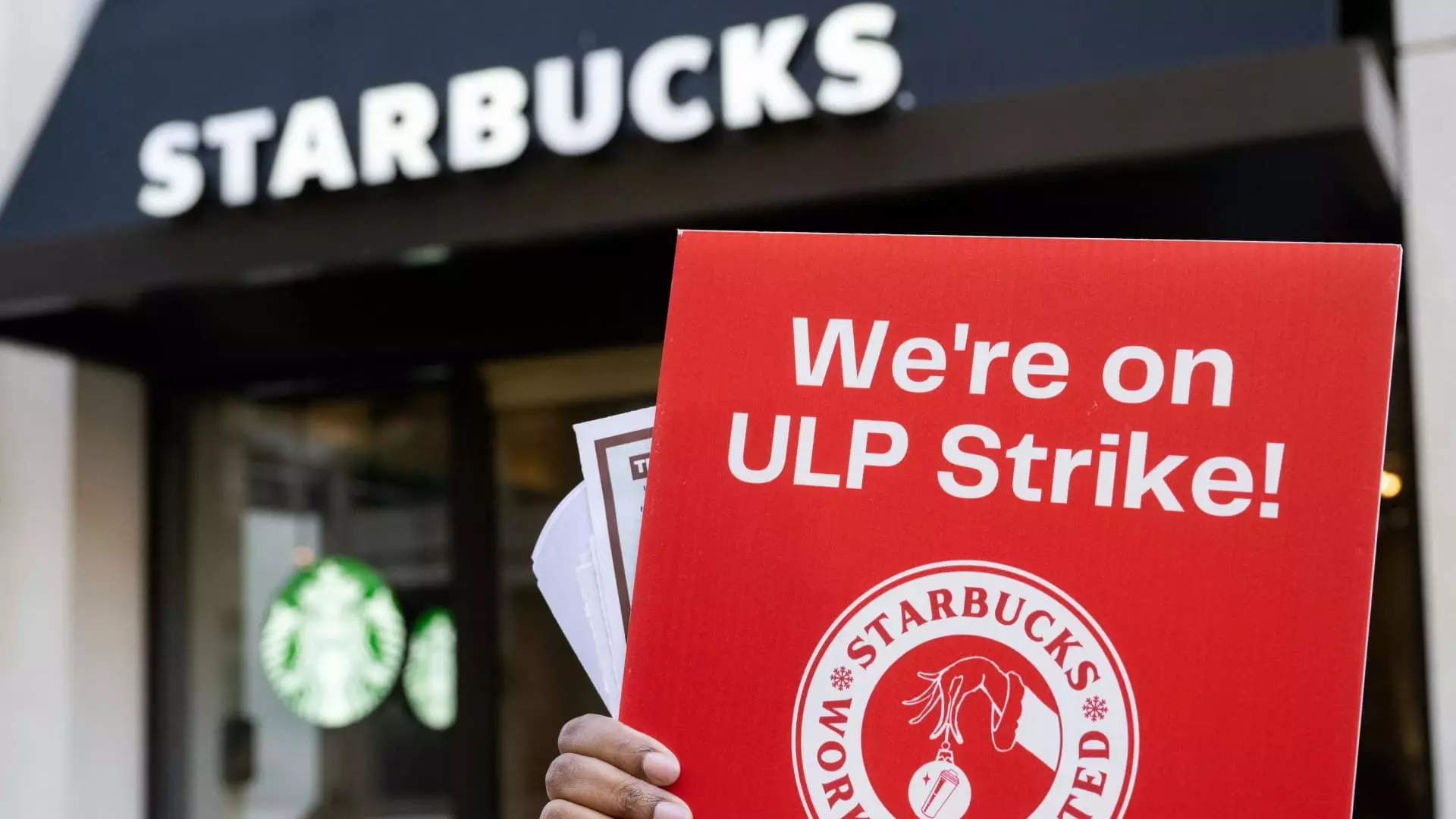A coalition of unions is gearing up for a proxy fight at the annual meeting of Starbucks in March. The Strategic Organizing Center (SOC) points out that the coffee giant’s human capital management strategy is flawed and puts the company’s reputation, shareholder returns, and customer base at risk. The coalition plans to replace three current Starbucks board members with their own nominees.
Baristas at nearly 400 Starbucks-owned cafes have voted in favor of organizing since late 2021. This move comes as a response to the aggressive anti-union strategy implemented by Starbucks. The SOC estimates that the company has lost around a quarter of a billion dollars due to its response to the unionization campaign, further damaging the brand’s value.
A poll conducted by Nielsen found that two-thirds of customers who visited Starbucks in the past month would be less likely to visit again if the company broke federal labor laws. This negative sentiment from customers poses a significant threat to Starbucks’ reputation and business.
The SOC claims that since the unionization efforts began, Starbucks’ stock has fallen by 6%, while its peers in the industry have seen median gains of 10.6%. Starbucks attributes its underperformance to external challenges such as macroeconomic effects and slow recovery in China, insisting that its steady operating performance is a testament to its resilience against market volatility.
The SOC has proposed three new director candidates for Starbucks’ board, citing their expertise in dealing with unions and labor laws. However, Starbucks argues that its current board members have the necessary experience and knowledge to oversee the company effectively. The company recently added three new directors, including CEOs of major companies, to bring diversity of talent and experience to the board.
Starbucks has defended its actions, stating that it has invested significantly in its employees by providing wage increases, training, and new equipment. The company aims to reach ratified contracts for each represented store by 2024 and has plans in place to unlock efficiencies worth $3 billion to reinvest in its workers. Starbucks’ CEO reiterated the company’s stance on unionization, emphasizing the importance of direct relationships with partners.
The ongoing proxy fight at Starbucks is a reflection of the tensions between the company and its employees. The SOC argues that Starbucks’ anti-union strategy has backfired, leading to financial losses and reputational damage. On the other hand, Starbucks maintains that it is focused on investing in its workforce and delivering strong financial performance despite external challenges. The outcome of the proxy fight will undoubtedly have a lasting impact on Starbucks’ future operations and relationships with its employees.

Leave a Reply